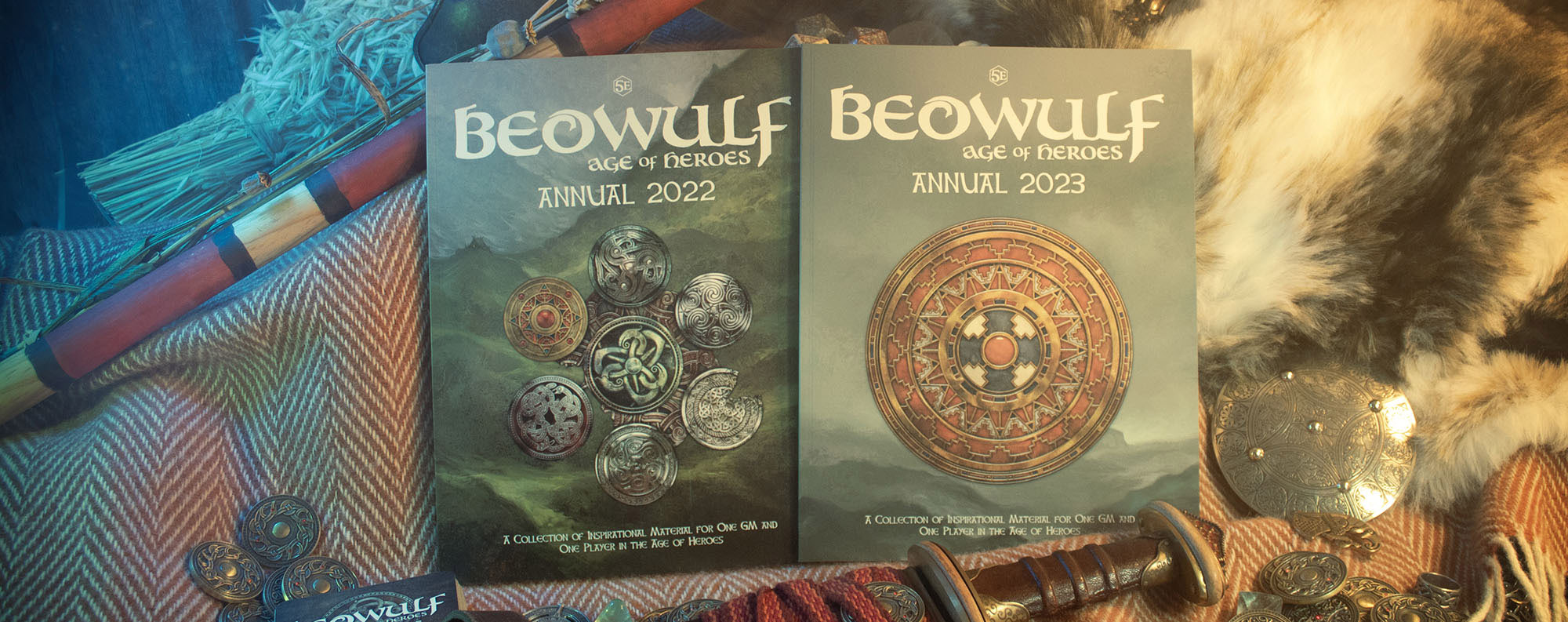Jon here.
I read a forum thread the other day about humans in RPGs. Do fantasy settings have to have humans? I was a little unsure about the framing of the question, but the core thought made me realise something.

Our games seem specifically to be all about humans and the human condition. That’s expressed in a ton of different ways, but it’s a common thread running through all of them. We only make one game where there’s any possible doubt that you play a human, and that’s Maskwitches, which has an option that your characters not even real in the routine sense, but are as imaginary as the evil spirits they battle, both sides being conjured up by a community in crisis.
The suggestion being that you might like to explore what that means, in a curious Mesolithic “Do Hunter-Gatherers Dream of Flint Sheep?” manner.
(Arguably in The Silver Road, you can be whatever you like. But it’s so wholly open and freeform as to become a meaningless example.)
But those almost-exceptions aside, our games overwhelmingly focus on humans, and that blew my mind a little bit. We don’t do that on purpose, and yet it’s something we’re apparently committed to doing.
So what’s that all about? Let’s look at some practical reasons.

In BEOWULF we were very keen to ditch “race” right away. It feels like an outmoded term, and “playable races” are a really poor fit for the setting. There are “elves and dwarves”, and indeed Tolkien’s elves and dwarves have their roots in the same source material. But in BEOWULF they’re wholly supernatural creatures – forces of nature which are frightening, powerfully and inexplicable to human beings.

Beowulf as a character in the poem is resounding human. The poem itself is all about humanity and the human struggle: about what matters to the people we call the Early English.
In terms of rules, it was surprisingly straightforward to lift the choice of so-called “race” straight out of the rules and move those packages of different benefits and differentiators into other areas of character creation. This, funnily enough, is something that we’re again making strong use of in KING BEOWULF, where you create a kingdom in the mode of a character. Albeit on a very different scale.
In a|state, being dystopian sci-fi there’s no question of playing fantastical creatures.
It is very much a game about human community and the struggle against authority, and the strangeness and curiosity comes from other places within the setting.
Drawing as it does on the dystopian science fiction of the 1960s and 1970s, a|state is really about humanity and the human experience. In the second edition the focus of play is resoundingly on community. It doesn’t feel like there’s much room to bring in “other” kinds of being without diluting that focus. And that’s not something I’ve ever seen discussed – I assume it was at some point during the creation of the first edition.

Maskwitches of Forgotten Doggerland is likewise about humanity. In Maskwitches there’s more of a concern for spiritual well-being, what that means, and how it manifests in a world so very unlike our own.
In this setting, there’s a great deal of fuzziness around what is “other”, and a lot of our play has centred around that. The “supernatural” elements are more natural, and a natural consequence of human behaviour.

Essentially, when the monsters come, it’s the fault of people, and your characters, as Maskwitches are always looking to prevent the evil spirits arising. And if they do arrive, then your task is to remove them, and return things to the status quo. At its heart, it’s almost always about human drama, expressed through a world of supernatural dangers.
Even the upcoming FiveEvil is all about human beings. It’s firmly rooted in the cinematic and literary horror genres, which focuses on people and their desperate struggles to survive a terrifying scenario.

I find it really interesting that by accident we’re so focused on humanity and human beings, and appear to have given almost no thought to playing other “species”. I guess it’s apparently just not something that holds a big appeal to us as writers and designers. Who knew?
It bears saying that of course other species of being existing as playable options can still be all about humanity. Tolkien’s Hobbits are the most human, the most relatable creatures in all of his work, and quite deliberately so. The differences seen in fantastical creatures can very much make them about the human experience. We seem, for whatever reason, to have chosen so far not to take that route. So far, at least.
I can say as the de facto “head of editorial” (we just don’t really have that kind of structure, as a collective of creative people) that I’ve never taken any kind of conscious decision to rule out playing an elf. I’d go as far as to say within the fantasy genre I’ve always loved an elf. I had long hair as a teenager in a concerted attempt to be an elf. But thinking about it now, it seems an almost absurd notion in the context of our games.
Huh. Further (over) thinking will be required on this topic!



